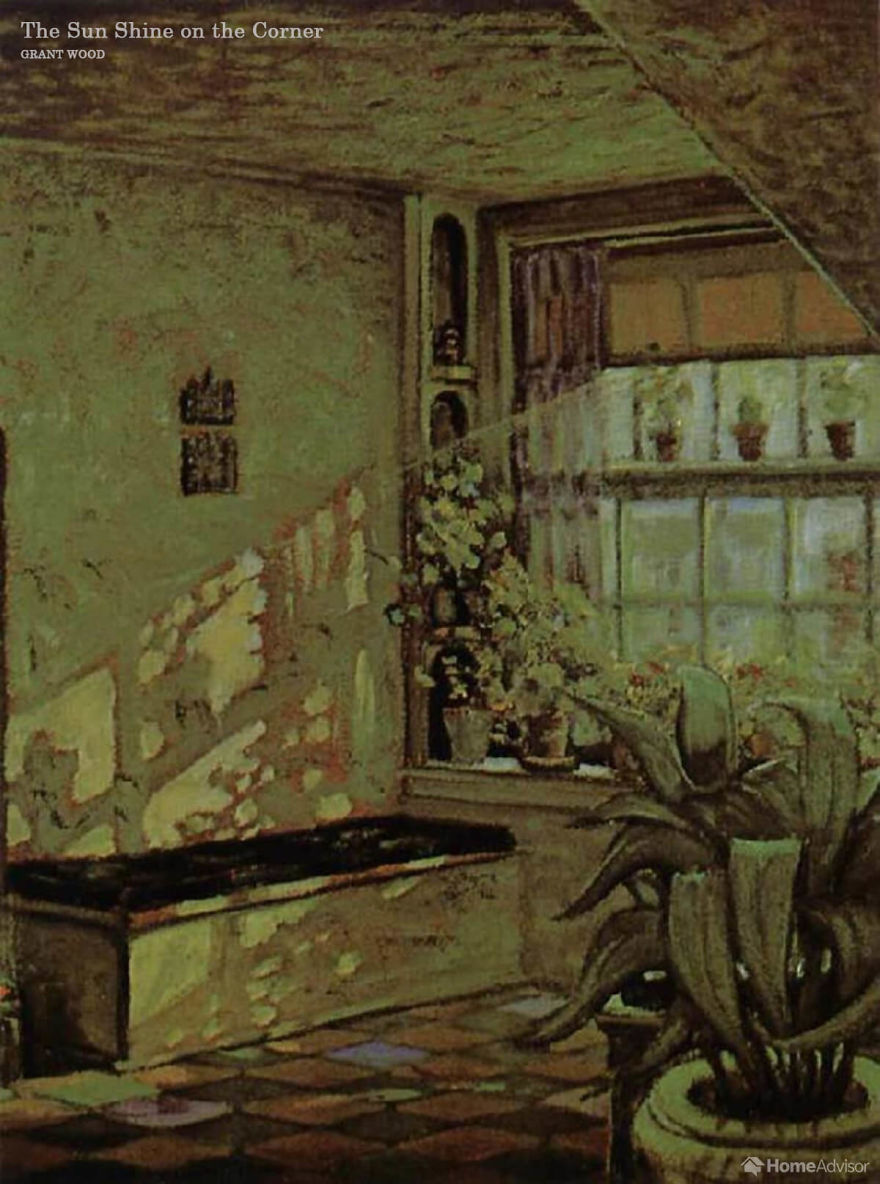Paintings of historical interiors are always fascinating as they are a glimpse of the stylistic conventions from past eras. They give us an insight into a past life, decorating trends of the time, people’s lifestyles and, of course, the state of mind of the artist who created them. They give us a wonderful opportunity to discover the past!
With this in mind, we wouldn’t lie saying that such paintings as Vincent van Gogh’s ‘The Bedroom’, Grant Wood’s ‘The Sun Shine on the Corner’, Wassily Kandinsky’s ‘Interior (My Dining Room)’ and many more, are historical records. UK-based creative agency NeoMam decided to revive these famous paintings and for their client Home Advisor create paintery interiors as if they were real-life rooms of the modern world.
“This got us thinking, what did these household settings from famous paintings look like in the real world? What if instead of a painting, the artists had taken a photograph?”
The 6 rooms bring to life famous paintings completed over the last two centuries with CG technology. The team that collaborated to create a realistic representation of each painting included specialist researcher Charlie Ashton, managing editor Jonathan Addy, CG artist, and interior designer Andrey Barinov and art director Povilas Daknys.
More info: homeadvisor.com | neomam.com | Facebook
‘The Bedroom’ by Vincent Van Gogh
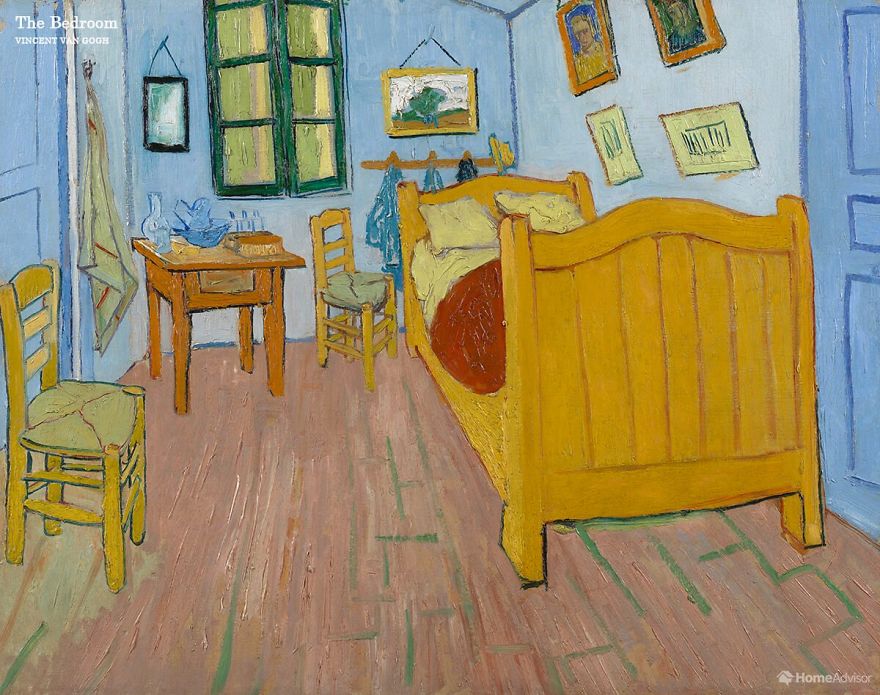
Image credits: The Art Institute of Chicago
The painting known as ‘The Bedroom’ depicts Van Gogh’s room in the French town of Arles. The artist himself described this painting as the evocation of peace and relaxation. The bedroom features simple wooden furniture and his own artwork on the walls. The use of strong, contrasting colors and claustrophobic walls tend to evoke the rest or sleep that he experienced in his bedroom.
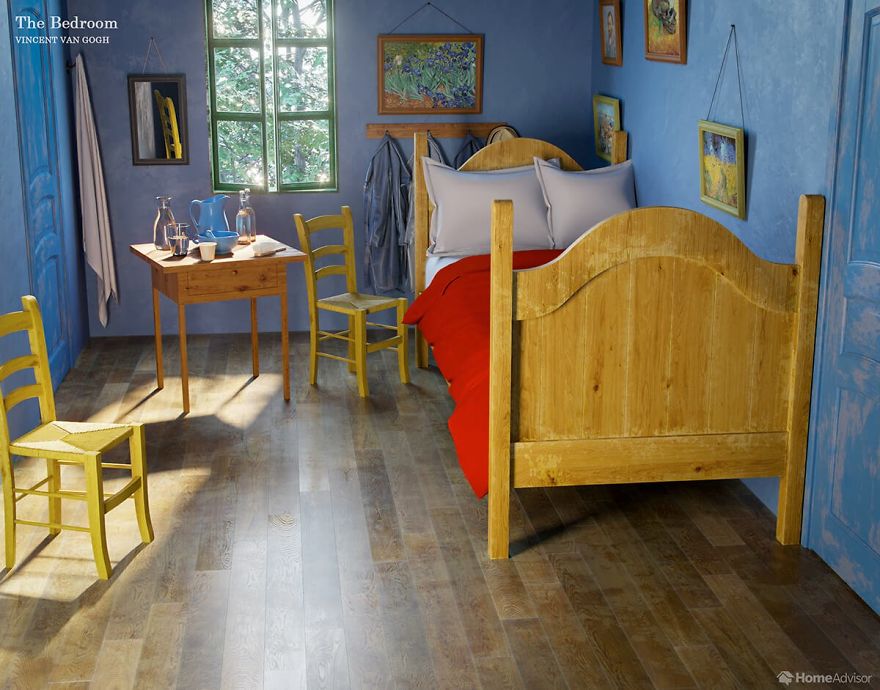
Image credits: Home Advisor
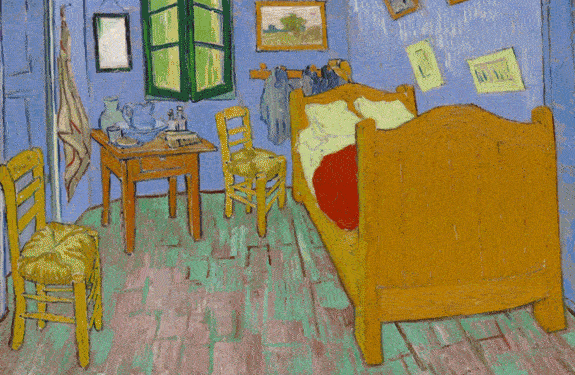
Image credits: Home Advisor
‘Interior with restful paintings’ by Roy Lichtenstein
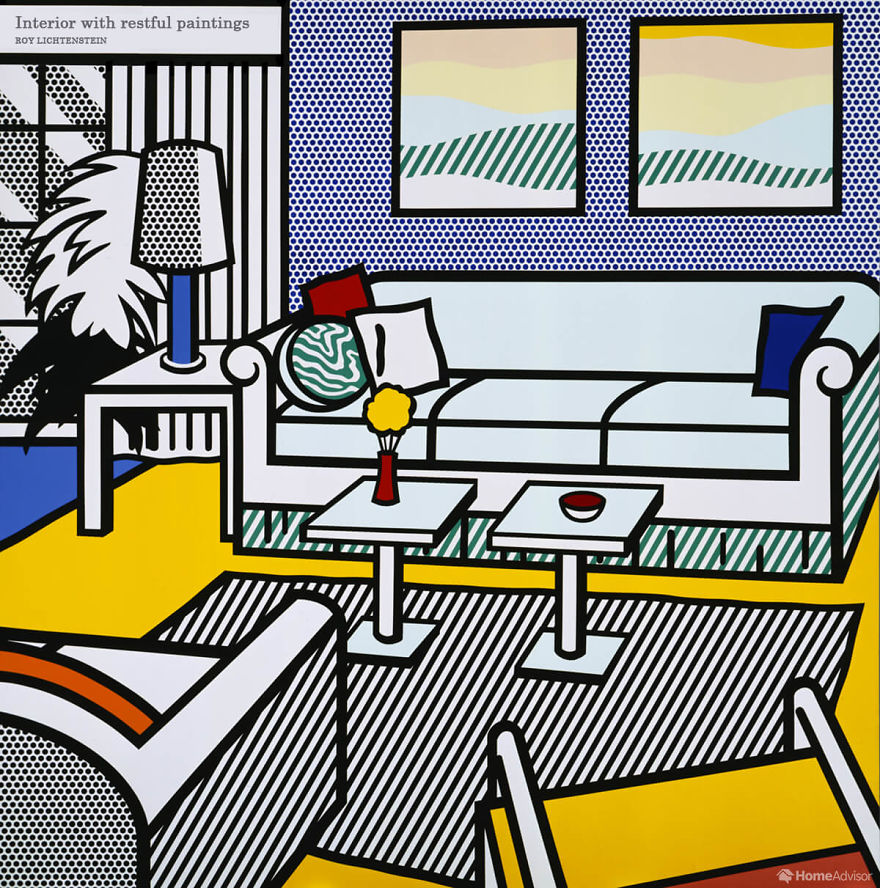
Image credits: Museu Coleção Berardo
One of the leading figures of the Pop art movement, Roy Lichtenstein, visualizes his living room quite unrestfully, almost disputing the title of his painting ‘Interior with restful paintings’ from 1991. The painting features stripes and dots that later on became his signature. His 2D take evokes the flatness of a comic strip, therefore, it has a real Pop Art feel.
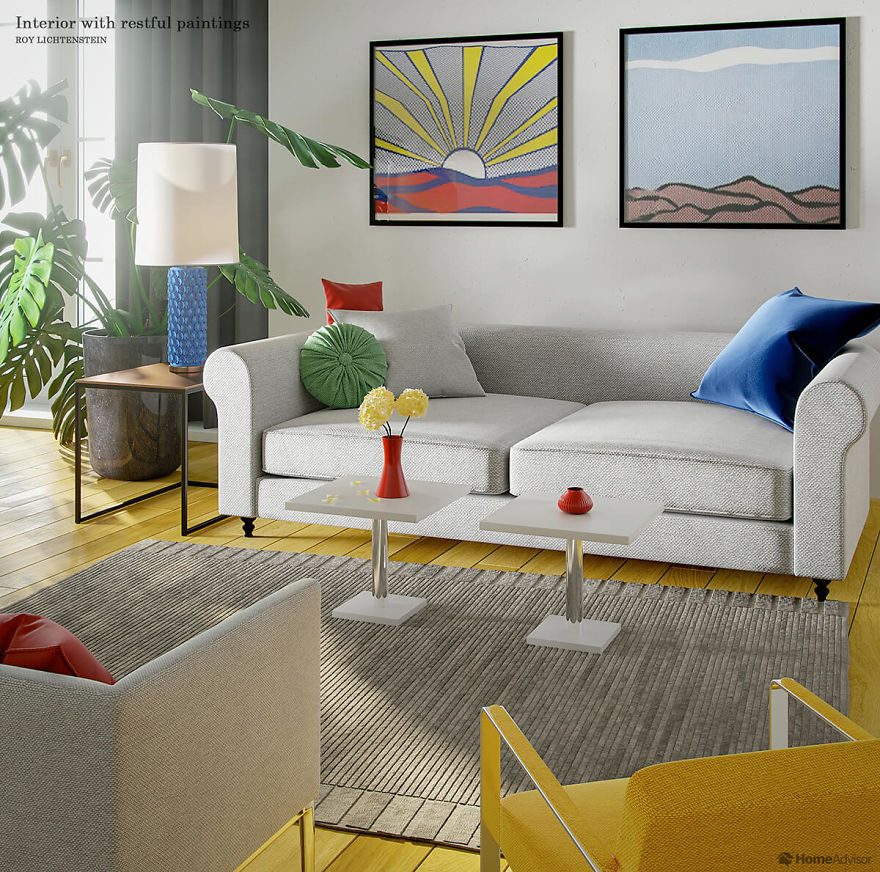
Image credits: Home Advisor
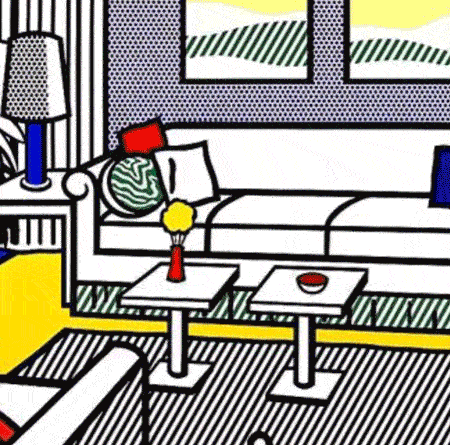
Image credits: Home Advisor
‘Interior (My Dining Room)’ by Wassily Kandinsky
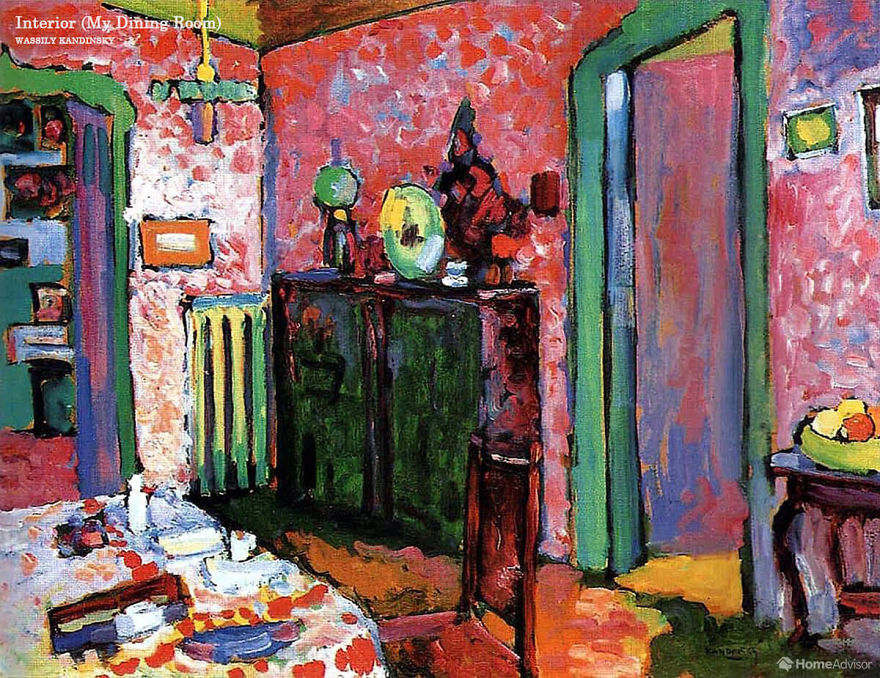
Image credits: Wassily Kandinsky
The ‘Interior (My Dining Room)’ is an oil painting from the early stages of Kandinsky’s career. In 1909 (the time when the painting was made), Kandinsky was evolving from figurative to abstract art and the painting of his dining room surely has its features. The canvas is mainly warm with tones of red, green and pink, forming a cheerful and happy atmosphere.
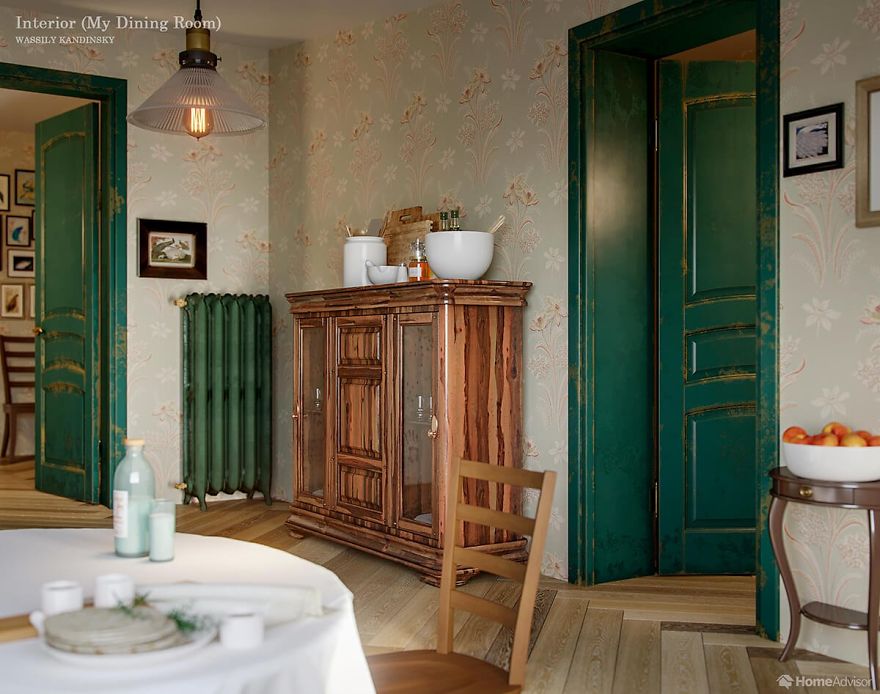
Image credits: Home Advisor
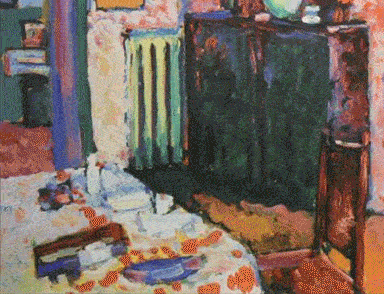
Image credits: Home Advisor
‘Interior’ by Konstantin Korovin
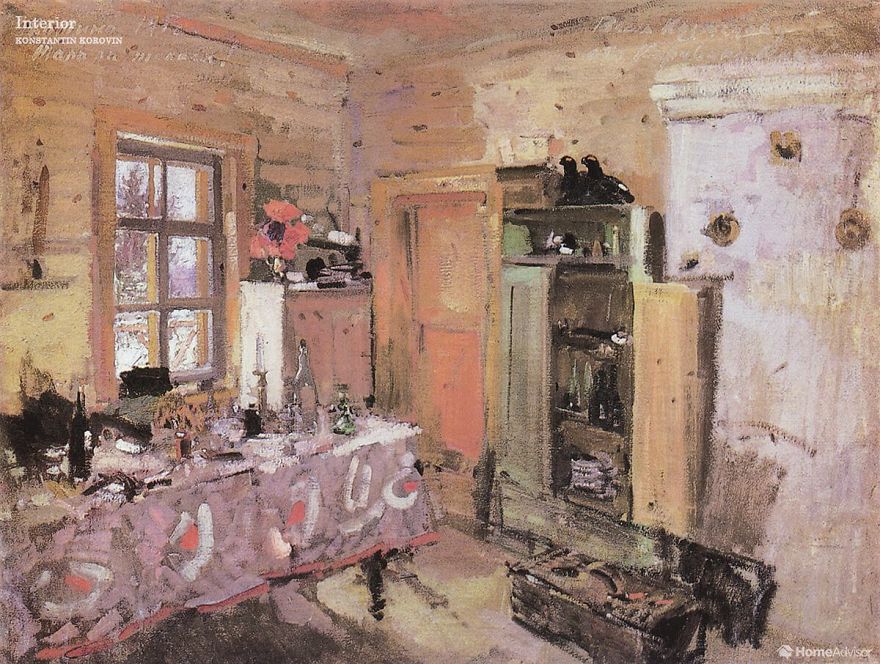
Image credits: WikiArt
The ‘Interior’ depicts Konstantin Korovin’s kitchen from 1913. Being a leading Russian impressionist painter, Korovin visualizes bare walls and wooden floor using soft, pastel colors. He focuses on function over form and emphasizes the use and value of every element.
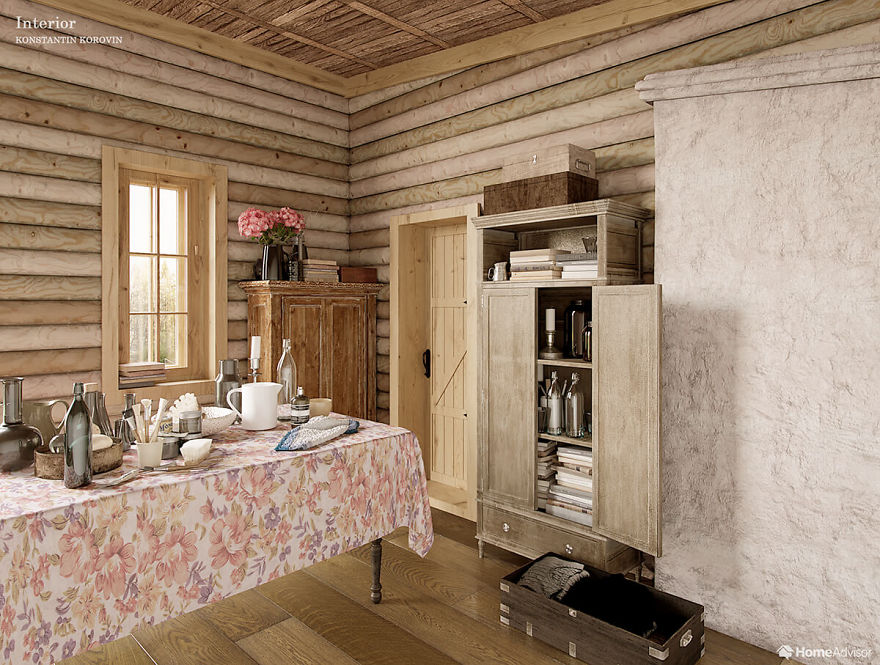
Image credits: Home Advisor
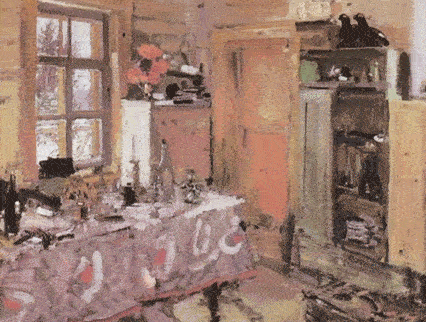
Image credits: Home Advisor
‘The Sun Shine on the Corner’ by Grant Wood
Image credits: WikiArt
American painter Grant Wood is best known for his famous masterpiece ‘American Gothic’ – the painting of a standing farming couple outside their wooden lowa home. ‘The Sun Shine on the Corner’ from 1928 has the same rural melancholy and quietness feeling as ‘American Gothic’. In his painting, Grant uses only two colors: the white for flowers, walls, fittings and fixtures, and the lively green for plant leaves forming a sense of stylishness.
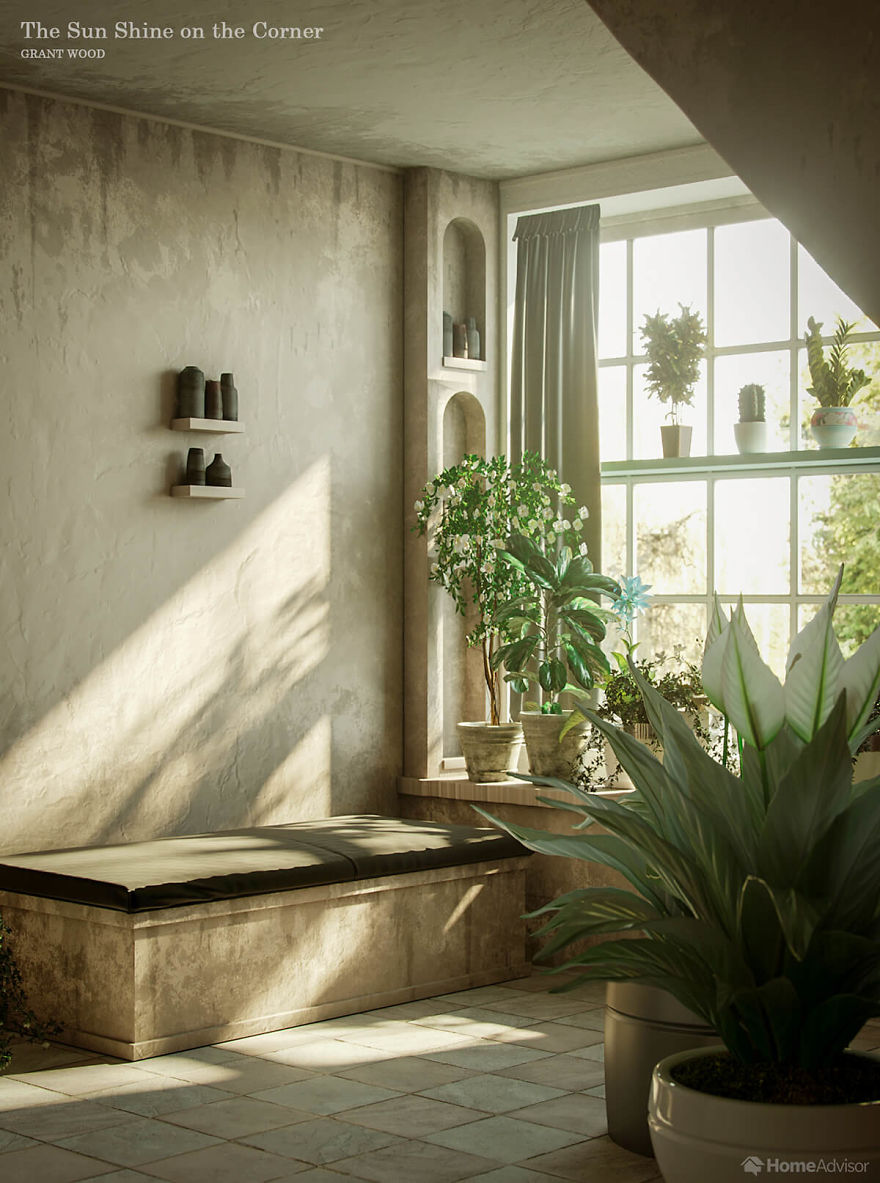
Image credits: Home Advisor
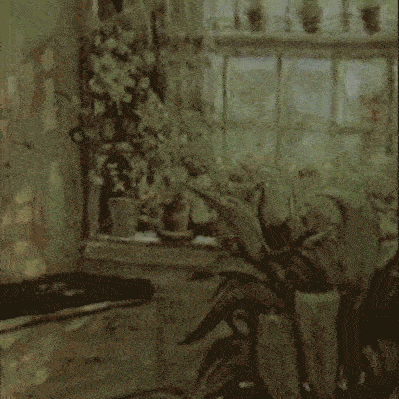
Image credits: Home Advisor
‘Empress Alexandra Feodorovna’s Sitting Room, Cottage Palace, St. Petersburg, Russia’ by Eduard Petrovich Hau
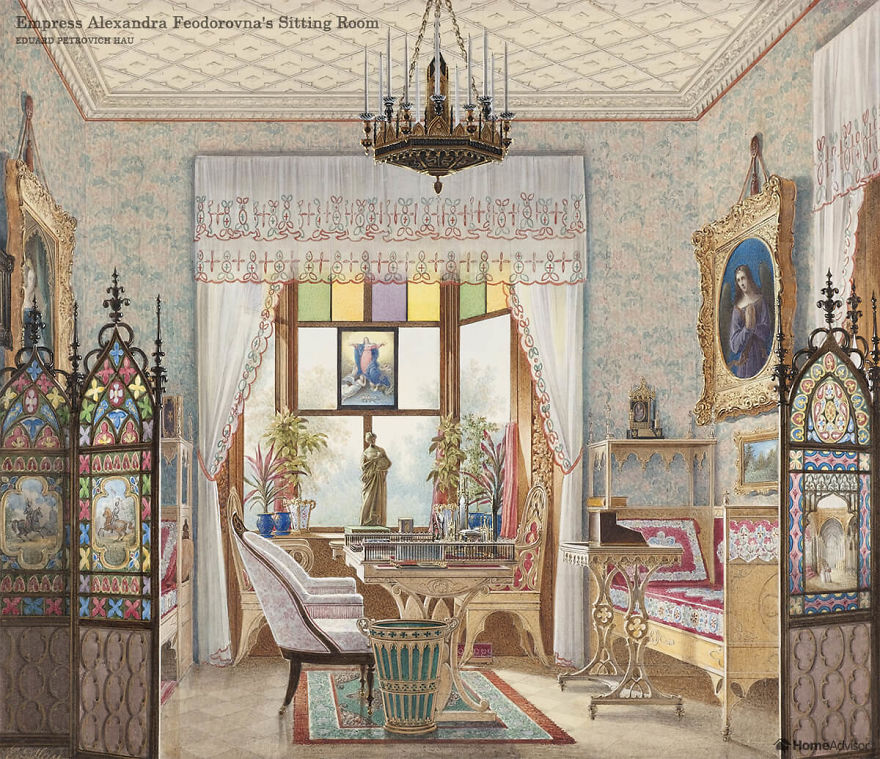
Image credits: Cooper Hewitt Collection
The interior of ‘Empress Alexandra Feodorovna’s Sitting Room, Cottage Palace, St. Petersburg, Russia’ painting by Eduard Petrovich Hau is decorated in the Neo-Gothic style. In his painting, Petrovich depicts Tsarina of Russia’s sitting room which looks rather posh with a lot of details of stained-glass, a Gothic chandelier and screens. It is worth noting that this was a part of a cottage built for the Tsarina to “rest her eyes from all that gold”.
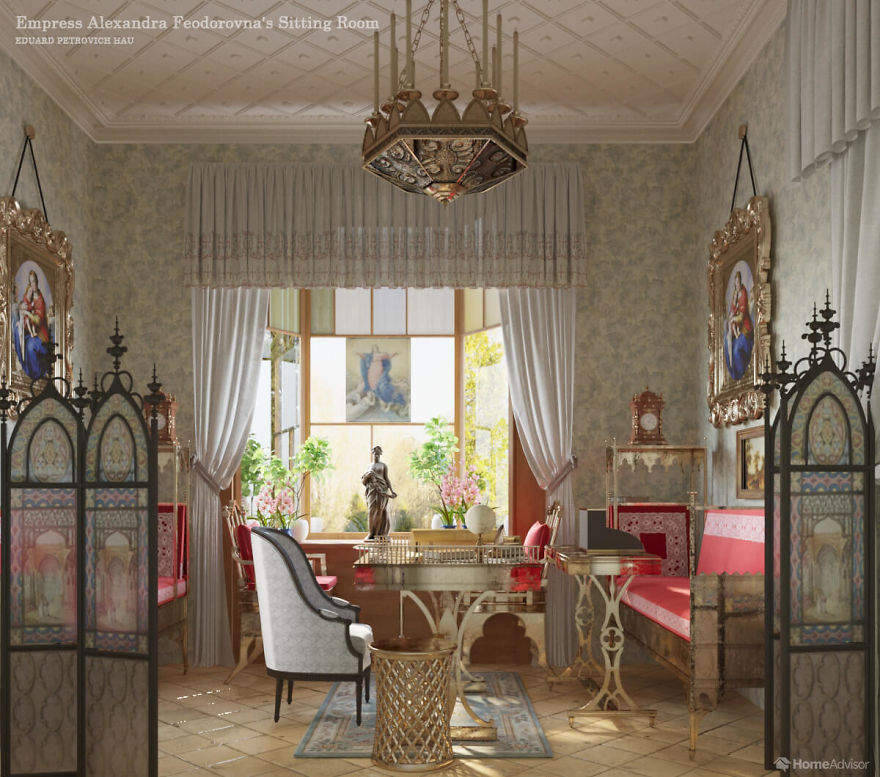
Image credits: Home Advisor
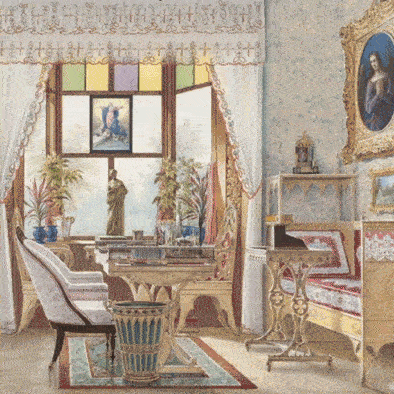
Image credits: Home Advisor
from Bored Panda http://bit.ly/2U8CGV5
via Boredpanda
